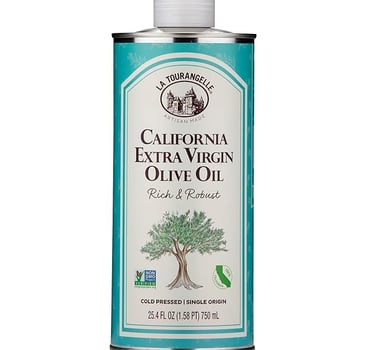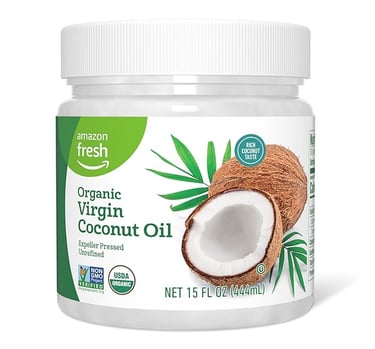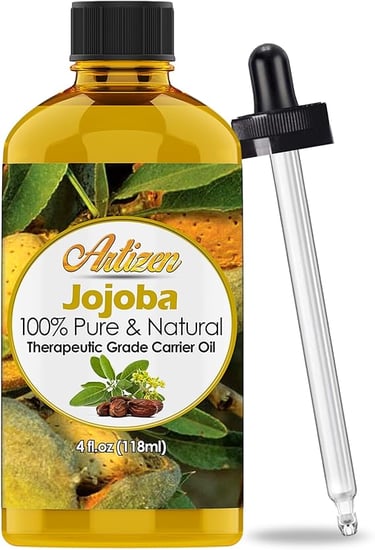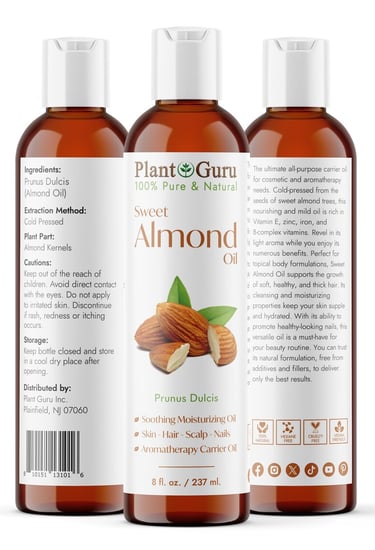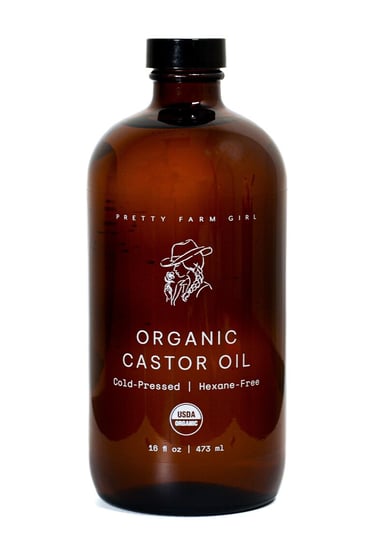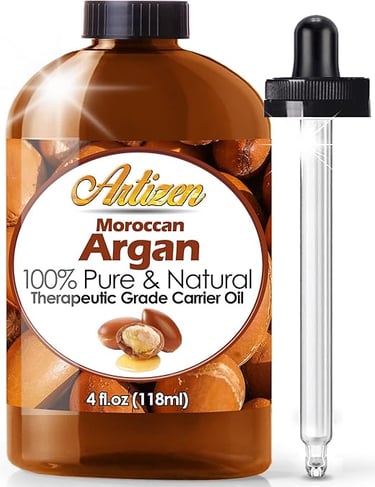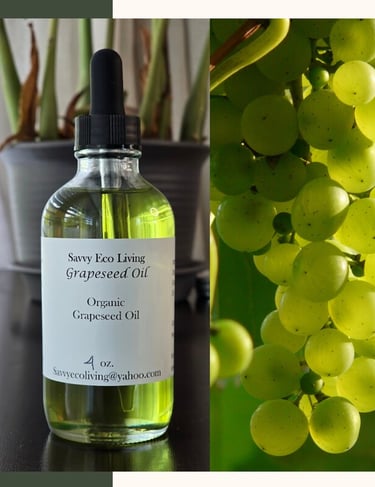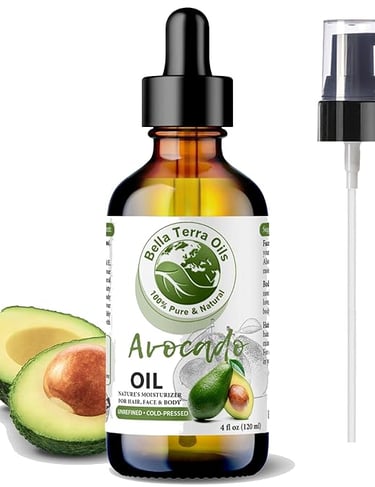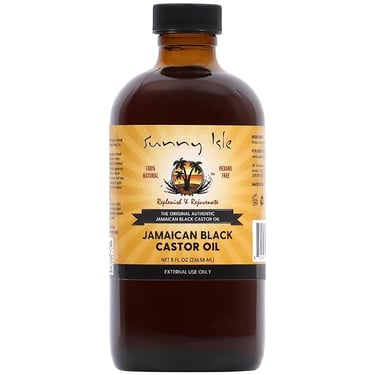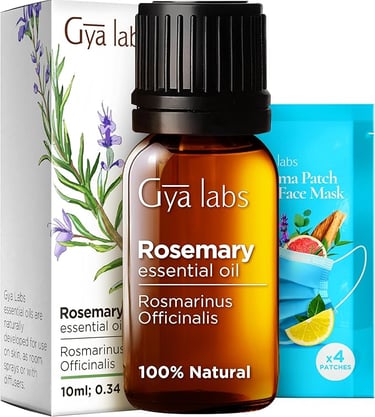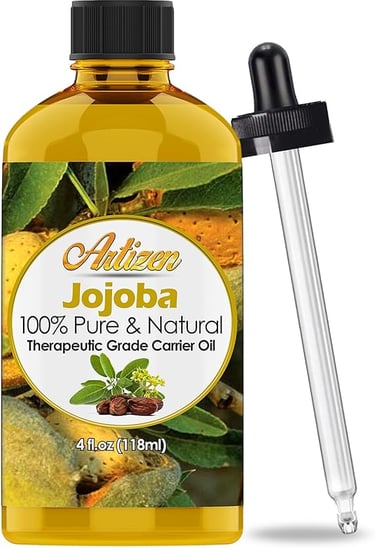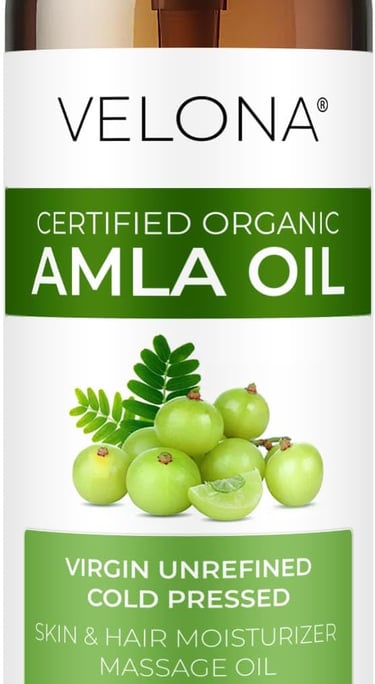Discover a special selection of items
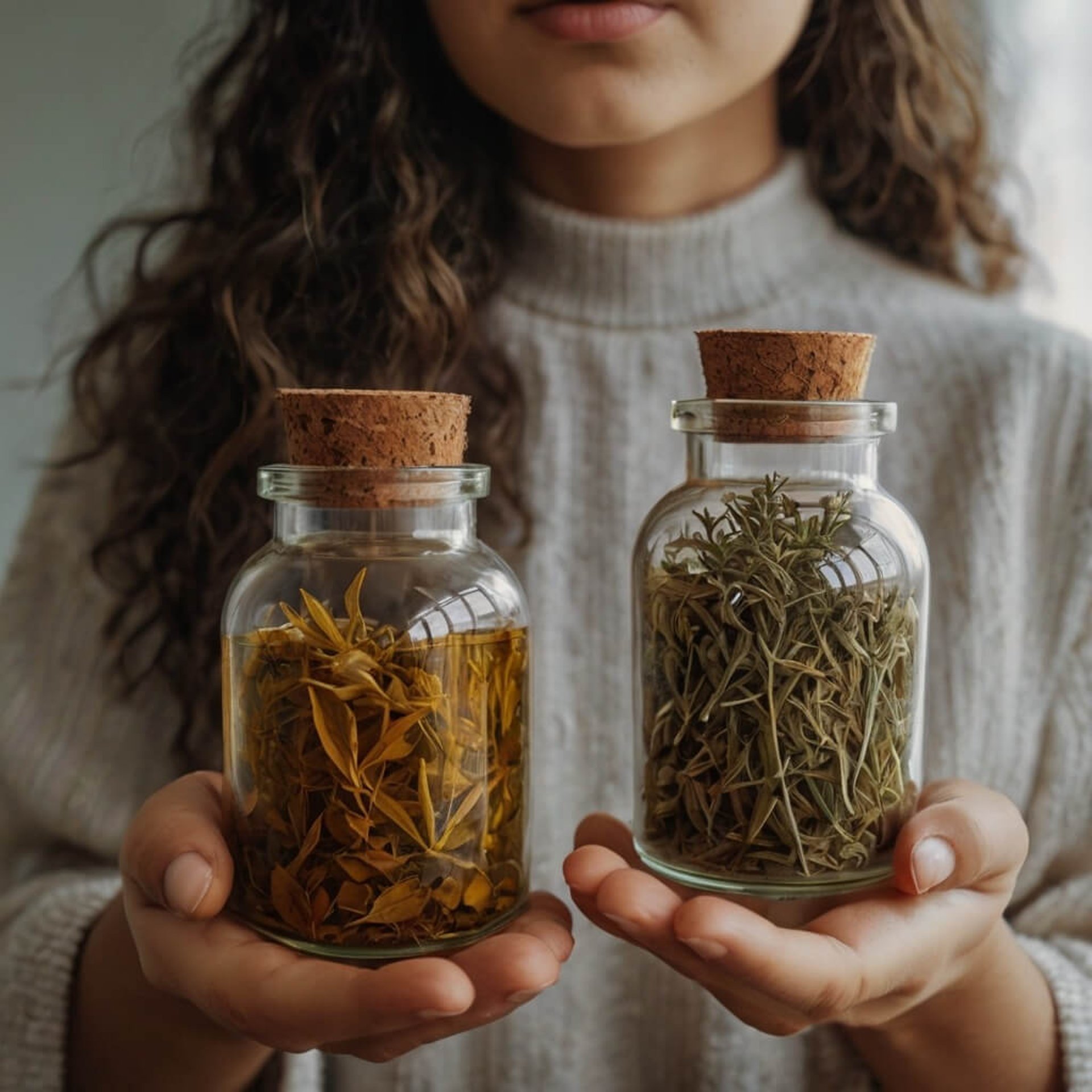
DIY: Natural & Handmade Carrier Oils for Hair Growth
Discover the art of infusing natural herbs to craft your own effective hair growth oils. Our easy-to-follow DIY guide teaches you how to macerate for stronger, longer, and healthier hair
BEAUTY AND WELLNESS
Alexandra A.
5/28/2025
🌿💧What Are Infused (or Macerated) Oils?
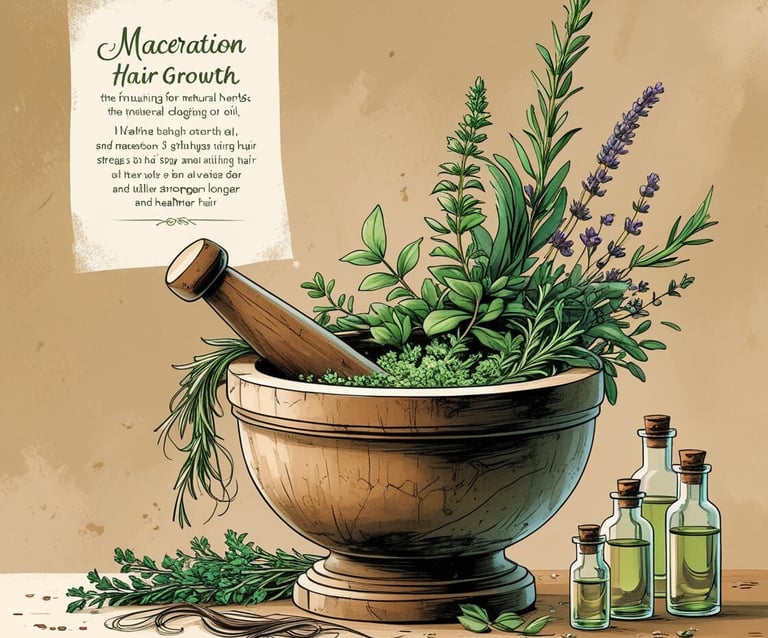

Affiliate Disclosure: Nature has given us everything we need to nourish our roots—literally. In this post, I’ll guide you through powerful, natural oils that you can make at home or buy from small artisans. (Some links below are affiliate links. That means I may earn a small commission if you purchase through them—at no extra cost to you. Thank you for supporting handmade and independent creators!)
In the world of natural care and Do It Yourself (DIY), we often hear about infused oils or macerated oils. But what do these terms really mean?
At their core, an infused or macerated oil is a carrier oil that has been enriched with the properties of one or more plants, such as herbs, flowers, or roots. Through a prolonged soaking process, the beneficial compounds of the plant are released and incorporated into the base oil.
Imagine a neutral oil—like olive oil, almond oil, or jojoba oil—acting as a gentle extractor. When you submerge herbs like rosemary, lavender, or calendula in it, the oil transforms over time. It takes on the plant’s subtle aroma and also absorbs its therapeutic properties, vitamins, and antioxidants.
What Is the Difference Between Infusion and Maceration?
Although they are often used interchangeably, the main difference between infusion and maceration lies in the extraction method, duration, and in some cases, the part of the plant used.
Infusion: This method is typically associated with the use of more delicate parts of the plant, such as soft leaves or flowers (lavender, chamomile, calendula). It often involves gentle heat application to speed up the process—similar to how you would steep tea, but using oil instead of water. The mild heat helps release volatile compounds like essential oils without damaging them. This is ideal when you want to prepare the oil in a shorter amount of time.
Example: Infuse calendula petals in sunflower oil for 3 hours using a double boiler over very low heat.
Maceration: Maceration is a longer, completely cold process in which parts of the plant (leaves, flowers, roots, or even dried fruits) are soaked in a base oil for several weeks (typically 2 to 6 weeks). This technique allows for a slow and thorough extraction of lipophilic compounds (such as terpenes, carotenes, and vitamins) without altering their structure through heat.
It is the preferred method for artisanal preparations that honor a more natural pace, as it helps preserve 100% of the plant’s benefits. In contrast, some flowers, roots, or herbs may lose a portion of their properties when exposed to heat during infusion.
Example: Macerate dried rosemary in olive oil for 4 weeks in a sealed jar placed in indirect sunlight.
🌿💧A Look at the Origins of This Technique
The practice of infusing oils with plants is not a modern trend. In fact, its roots stretch deep into ancient history. Civilizations such as the Egyptians, Greeks, and Romans were already using herb- and flower-infused oils for medicinal, cosmetic, and spiritual purposes.
In both Greece and Rome, plant-based oils were considered essential for body care and wellness. Olive oil was commonly used as a base and macerated with aromatic herbs, flowers, and botanicals to create:
Massage and relaxation oils
Skin and hair treatments
Sacred and perfumed oils used in temples and rituals
Greek athletes, for instance, would cover their bodies with macerated oils before and after physical activity, as part of a physical and spiritual ritual. Hippocrates, known as the father of medicine, documented the use of herbal oils as part of treatments for inflammation, wounds, and overall bodily balance.
The Romans refined this art in their famed thermal baths, where they would apply herbal oils to the skin after bathing. This practice was not only cosmetic, but also deeply therapeutic and sensory.
In ancient Egypt, women crafted oils infused with flowers and herbs to preserve youthful skin and strengthen their hair. These macerated oils were a cornerstone of beauty and medicine. Commonly used botanicals included lotus, jasmine, myrrh, and spikenard, which were infused in oils like sesame or moringa.
In Ayurveda, the traditional medicine of India, herbal oils remain essential to this day. For more than 2,000 years, macerated oils known as “Taila” have been carefully prepared using precise formulas and medicinal plants. These oils are:
Gently heated over long periods
Used in therapeutic massages (Abhyanga)
Made with herbs like brahmi, neem, bhringraj, ashwagandha, and rosemary, among many others
Intended to restore physical and energetic balance
Traditional Chinese Medicine & Other Cultures
In ancient China, herbal oils were used in traditional medicine and often paired with practices like acupuncture and cupping. Similarly, many Indigenous cultures across the Americas created plant-based oil preparations using local botanicals and animal fats, employing them for healing, protection, and spiritual rituals.
This practice was once seen as a healing art, guided by observation, time, and intention. In many traditions, preparing infused oils was a ritual in itself—done quietly, respectfully, and with a specific purpose: to heal, to soothe, or to protect.
Imagine ancient apothecaries setting jars of herbs in oil under the sun, slowly drawing out nature’s healing essence. These oils became the base for ointments, perfumes, and remedies used to treat a wide range of conditions. The skill of capturing the plant’s energy and benefits in oil was a precious knowledge, passed down through generations.
Today, we return to this ancestral wisdom with a renewed appreciation for natural ingredients and the deep satisfaction of making our own products.
When we infuse herbs into oils for hair growth, we are not only using a time-tested method—we are also connecting with a living tradition that honors the gifts of nature.
🌿💧Why Infused Oils Help Your Hair Grow Stronger and Healthier
In the quest for lush and resilient hair, many turn to a plethora of products promising miraculous results. However, nature often holds the most powerful secrets. Infused oils, an ancient method of extracting the beneficial properties of plants into nourishing carrier oils, offer a natural path toward stronger and healthier hair growth. But what makes these botanical blends so effective?
The power of infused oils lies in the synergistic relationship between the carrier oil and the botanical elements it holds. The carrier oil—often a nutrient-rich base like olive, coconut, jojoba, or almond oil—provides essential fatty acids that moisturize the scalp, strengthen the hair strand, and reduce breakage. This creates a healthy foundation for growth.
Then come the stars of the show: the herbs, flowers, and roots infused into the oil. Each botanical element brings its own unique set of properties to the mix. For example:
Rosemary: Known for its ability to stimulate blood circulation in the scalp, which can encourage hair follicles to become more active and promote growth.
Lavender: Offers not only a relaxing aroma but also properties that may soothe the scalp and potentially stimulate hair growth.
Horsetail: Rich in silica, a mineral believed to strengthen hair strands and improve elasticity, leading to less breakage and the appearance of fuller, healthier hair.
Nettle: Packed with vitamins and minerals that can nourish the scalp and strengthen hair from the root.
When these botanical elements are gently infused into a carrier oil, their vital compounds—vitamins, minerals, antioxidants, and essential oils—are gradually extracted and become bioavailable for your scalp and hair. This process allows for a gentle yet effective delivery of nutrients directly where they are most needed.
By using infused oils regularly, you’re feeding your scalp and strands with a powerful blend of natural goodness. This can lead to:
Strengthened hair follicles: Resulting in reduced hair fall.
Improved scalp health: Creating an optimal environment for growth.
Enhanced moisture retention: Preventing dryness and breakage.
Increased shine and manageability: For hair that looks as good as it feels.
🔬 Scientific Support: What Do the Studies Say?
The practice of infusing herbs in oils for hair care has ancestral roots, passed down through generations for its perceived benefits. Modern research supports the effectiveness of this extraction method. For example, a study published in the journal Molecules in 2017 ("Vegetable Oils as Alternative Solvents for Green Oleo-Extraction, Purification and Formulation of Food and Natural Products") confirmed that vegetable oils are effective solvents for the extraction of lipophilic compounds, such as carotenoids, terpenes, and fat-soluble vitamins, from natural sources, resulting in products rich in bioactive nutrients. Furthermore, numerous studies support the benefits of specific herbs traditionally used in infused oils for hair growth, such as rosemary and horsetail. This suggests that traditional wisdom has a scientific basis in the ability of oil maceration to release beneficial compounds from plants.
To sum up, infused oils offer a holistic approach to hair care. They combine the nourishing properties of carrier oils with the specific benefits of botanical ingredients, working in harmony to help your hair grow stronger, healthier, and more vibrant. Embracing this natural practice can be a transformative step in your hair care journey.
🌿💧Choose Your Base: The Best Oils to Macerate Your Herbs for Growth
Coconut Oil: Penetrates the hair shaft, reduces protein loss, and is antimicrobial.
You can find this coconut oil on Amazon here:
Olive Oil: A classic choice, rich in antioxidants and fatty acids. Easy to find and great for nourishing the scalp. To get all its benefits, it's preferable to choose cold-pressed olive oil. It's easy to find and good for nourishing the scalp.
You can find this olive oil on Amazon here:
Jojoba Oil: Similar to the scalp’s natural sebum, it balances oil production and is highly moisturizing.
You can find this jojoba oil on Amazon here:
Sweet Almond Oil: Rich in vitamin E, omega-3 fatty acids, and magnesium, it nourishes and helps prevent breakage.
You can find this sweet almond oil on Etsy here:
Castor Oil: Known for its ricinoleic acid, which is believed to stimulate growth and strengthen the follicle.
You can find this castor oil on Etsy here:
Argan Oil: Often called "liquid gold," it’s rich in antioxidants, vitamin E, and fatty acids. Moisturizes and reduces frizz.
You can find this argan oil on Amazon here:
Grapeseed Oil: Lightweight, fast-absorbing, and rich in antioxidants. Great for fine hair and sensitive scalps.
You can find this argan oil on Etsy here:
Avocado Oil: High in vitamins A, D, E, and B6, as well as amino acids. Penetrates deeply and nourishes.
You can find this argan oil on Amazon here:
🌿💧The Best Herbs to Stimulate Hair Growth
Nature provides us with a treasure trove of herbs that have been used for centuries to strengthen hair and encourage its growth. By macerating these powerful plants in carrier oils, we can extract their beneficial compounds and create natural and effective hair treatments. Which are these star herbs that can help you achieve longer and more abundant hair? Here are some of the most notable:
Rosemary:
Perhaps one of the most popular herbs for hair growth. Rosemary is believed to stimulate blood circulation in the scalp, which in turn can promote the growth of hair follicles. It is also attributed with antioxidant properties that can protect hair from damage.
Lavender:
In addition to its relaxing aroma, lavender can be beneficial for hair growth. It is believed to increase cell proliferation and reduce stress, a factor that often contributes to hair loss.
Horsetail:
Rich in silica, an essential mineral for hair health. Horsetail can strengthen hair strands, reduce breakage, and therefore contribute to the appearance of longer and stronger hair.
Nettle:
This herb is packed with vitamins and minerals, such as iron, magnesium, and B vitamins. Nettle can help strengthen hair follicles and promote a healthy scalp, which favors hair growth.
Brahmi (Bacopa Monnieri):
Traditionally used in Ayurvedic medicine, Brahmi is believed to improve blood circulation in the scalp and strengthen hair roots, thus stimulating growth.
Amla (Indian Gooseberry):
Another gem of Ayurvedic medicine, Amla is rich in vitamin C and antioxidants. It is believed to strengthen hair follicles, prevent hair loss, and promote healthy growth."
Note: The names of the herbs listed above contain links to stores where you can purchase them
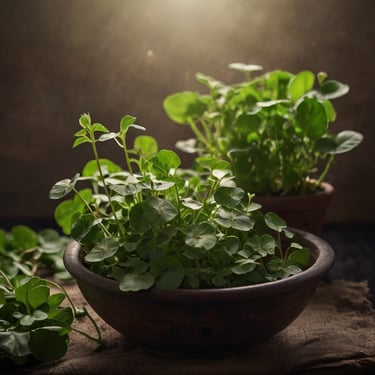
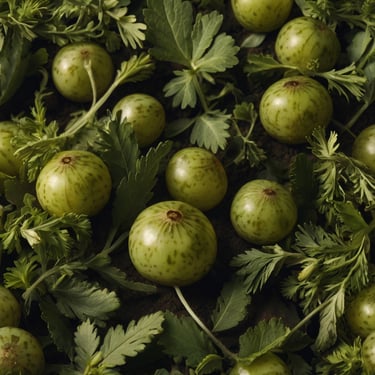
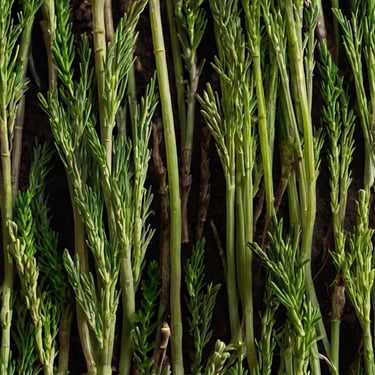
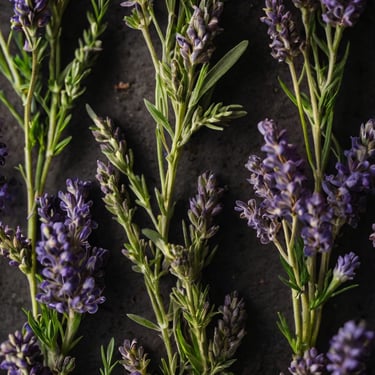
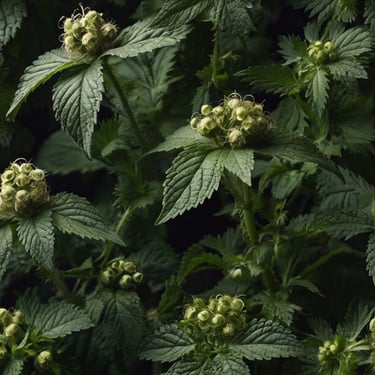
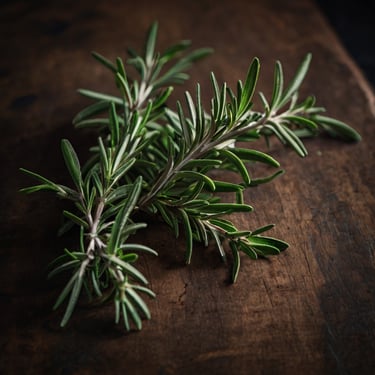
🌿💧DIY: How to Macerate Herbs in Oils for Hair Growth
In the world of natural hair care, few things are as powerful and satisfying as creating your own handcrafted treatments. Macerating herbs in oils is a simple process that allows you to extract the valuable compounds from plants and create your own personalized hair treatments.
Here, I’ll show you two main methods you can use: hot maceration and cold maceration.
Method 1: Cold Maceration (Traditional Method):
This method requires more time but is ideal for gently extracting compounds, especially from flowers or delicate parts of plants.
1. Prepare a clean, dry glass jar.
2. Add the dried herbs (one or several). Fill between 1/3 and 1/2 of the jar.
3. Completely cover with your chosen carrier oil.
4. Seal the jar tightly and place it in a warm spot with indirect light.
5. Let it sit for 3 to 6 weeks. Gently shake the jar every 2-3 days.
6. Strain with cheesecloth or a fine filter and store the oil in a clean, opaque jar.
Method 2: Hot Maceration (Faster Method):
This method is ideal if you're looking for faster results.
1. Follow the same steps, but place the jar in a water bath over low heat for 2 to 3 hours.
2. Make sure the oil doesn't boil.
3. Then strain and store the same way as in the previous method.
🌿💧DIY: Recipes for Macerated Hair Oils for Hair Growth
Dreaming of longer, stronger, and healthier hair? Nature offers us powerful ingredients that, when combined with the simple technique of oil maceration, can become your best hair care allies. Forget about endless lists of chemicals and discover the joy of creating your own nourishing treatments.
Below, I’ll share some DIY recipes that have worked for me personally, as well as experiences from others who have transformed their hair using infused oils.
Recipe 1: Rosemary Infused Oil to Stimulate Hair Growth
Rosemary is a classic when it comes to stimulating the scalp and promoting hair growth. Many people have noticed a difference when regularly using rosemary-infused oil.
Ingredients:
.1/2 cup of carrier oil (olive, jojoba, or almond—whichever you prefer)
.2–3 sprigs of fresh rosemary or 2 tablespoons of dried rosemary
Instructions (Cold Maceration):
1. Place the rosemary in a clean glass jar.
2. Completely cover it with the carrier oil.
3. Seal the jar and let it macerate in a warm spot with indirect light for about 4 weeks, shaking gently every few days.
4. Strain the oil and use it by massaging it into your scalp.
Experiences:
Users in forums and blogs report feeling a more stimulated scalp, and with consistent use, they notice stronger hair with reduced shedding. Some even observe faster hair growth.
Personally, this is my favorite oil for stimulating hair growth.
Recipe 2: Lavender Infused Oil for a Calm Scalp and Hair Growth
Lavender not only smells amazing, it also has soothing properties for the scalp, helping create a healthy environment for hair to grow.
Ingredients:
.1/2 cup of carrier oil (coconut or almond work well)
. 1/4 cup of dried lavender flowers
Instructions (Cold Maceration):
1. Place the dried lavender flowers in a clean glass jar.
2. Pour in the carrier oil until the flowers are fully covered.
3. Seal and let it macerate for 3–4 weeks in a warm, dark place, shaking occasionally.
4. Strain the oil and apply it to the scalp or along the length of your hair.
Experiences:
Those who have tried lavender-infused oil often mention a less irritated scalp and softer, shinier hair. Some also report a slight improvement in hair growth.
Recipe 3: Nettle Infused Oil to Strengthen Hair
Nettle is rich in nutrients that can strengthen hair from the root, contributing to healthier and stronger growth.
Ingredients:
.1/2 cup of carrier oil (olive or grapeseed oil)
. 2 tablespoons of dried nettle leaves
Instructions (Hot Maceration – Optional for Faster Results):
1. Place the carrier oil and nettle leaves in a heat-resistant glass jar..
2. Set the jar in a pot with hot water (double boiler method) over low heat for about 2 hours, making sure the water doesn’t boil.
3. Let it cool, strain, and store. Alternatively, you can opt for cold maceration for 4–6 weeks.
Experiences:
People who have used nettle-infused oil often report reduced hair shedding and hair that feels thicker and stronger.
Feel free to Experiment:
These are just a few ideas to get you started. You can combine herbs and oils according to your needs and what you have on hand. The key is patience during the maceration process and consistency in application."


🌿💧How to use infused oil in your hair care routine?
You can apply your infused oil in several ways:
Scalp massage: 2–3 times a week, to stimulate circulation.
Overnight treatment: Apply from mid-lengths to ends and cover with a cap or scarf.
Ends serum: Use a small amount to seal and add shine.
Pre-wash: Leave it on for 30 minutes before washing.
🌟 Visible results: many people notice more softness, less shedding, and greater shine within 4–6 weeks of consistent use.
Additional Tips:
1. Use dried and organic herbs to avoid contamination.
2. Store your oil in a dark jar in a cool place.
3. Add vitamin E as a natural preservative if desired.
4. Make small batches to maintain freshness.
🛍️ Don't have time to make it yourself?
Here are some of my favorite ready-made options that you could also try.
Lately, I've been experimenting with two amazing oils for my hair, and I have to tell you about them! First, rosemary oil. I've been incorporating it into my routine a couple of times a week, giving myself a scalp massage with a few drops about 20 minutes before washing my hair. I can feel it stimulating my scalp – it's a great sensation! Plus, I've noticed my hair feels stronger, and I think it's even helping with growth. I've also diluted it with a bit of carrier oil to nourish my scalp, and I love how it feels!
The other oil that has become a must-have is Amla oil. This organic, cold-pressed oil is wonderful. I use it after shampooing, gently massaging it into my scalp and sometimes along the lengths of my hair. I feel like it nourishes and hydrates it so much. My hair looks shinier and feels softer since I started using it!
If you're looking for natural options to strengthen your hair and stimulate growth, I definitely recommend trying these two oils! They've worked really well for me, and I think you might love them too.
😊you're looking for a natural alternative to strengthen your hair and encourage its growth, infused oils are an excellent option. Whether you choose the DIY route or prefer a ready-to-use option, incorporating these oils into your routine can make a noticeable difference. Enjoy healthier and fuller hair!😊

Welcome!
Thanks for stopping by All Shopping! We hope we can help you discover the best products.
Happy shopping!
Contact Us:
© 2025. All rights reserved.

